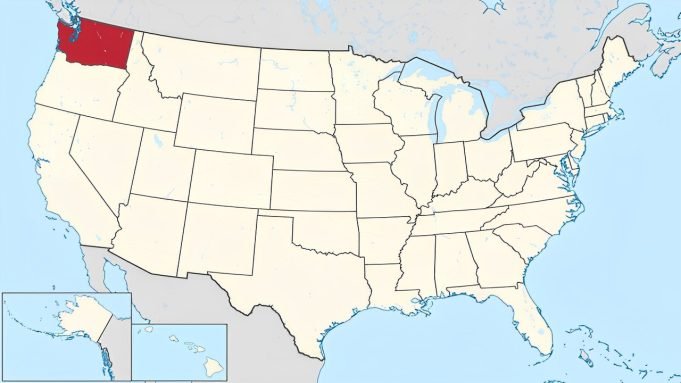Seattle Time Zone located in King County, Washington, is in the Pacific Daylight Time (PDT) zone. The time difference from Greenwich Mean Time (GMT) is GMT-7 hours.
Regarding daylight saving time (DST), the previous DST change in Seattle occurred on Sunday, March 12, 2023, at 2:00 AM. The GMT offset shifted to GMT-7 hours, resulting in the clocks being set forward by 1 hour.
The next DST change is scheduled for Sunday, November 5, 2023, at 2:00 AM. At that time, the GMT offset will revert to GMT-8 hours, and the clocks will be set back by 1 hour as the region transitions to standard time.
What Time Zone in Seattle?
Seattle, Washington is in the Pacific Time Zone (PT). The city follows Pacific Standard Time (PST) during standard time, which is UTC/GMT -8 hours. During daylight saving time, it switches to Pacific Daylight Time (PDT), which is UTC/GMT -7 hours.
Being in the Pacific Time Zone means Seattle shares the same time as other cities along the West Coast of the United States, such as Los Angeles and San Francisco. This time zone adjustment allows residents and visitors to schedule activities and coordinate with neighboring regions seamlessly.
Details About Seattle Time Zone
| Country | United States |
| State | Washington (WA) |
| Seattle Time Zone Name | Pacific Daylight Time |
| Time change | Next change in 4 months and 16 days, set your clock back 1 hour |
| DST Start Date | Sunday 12 March 2023, 02:00 local standard time (PST) |
| DST End Date | Sunday 05 November 2023, 02:00 local daylight time (PDT) |
| Standard Time Zone | UTC/GMT -8 hours (Pacific Standard Time) |
| Daylight Saving Time | +1 hour |
| Current Time Zone Offset | UTC/GMT -7:00 hours (Pacific Daylight Time) |
| Time Zone Abbreviation | PDT |
| Latitude | 47° 36′ 22″ North |
| Longitude | 122° 19′ 55″ West |
Does Seattle Use Daylight Saving Time?
Seattle, Washington, indeed observes Daylight Saving Time (DST). Each year, the city undergoes the transition between standard time and daylight time. This practice aligns Seattle with the majority of the United States, where DST is widely practiced.
The clocks in Seattle are set forward by one hour during the DST period, typically beginning on the second Sunday of March and ending on the first Sunday of November. This adjustment provides longer evenings with more daylight, allowing residents and visitors to make the most of the extended daylight hours. As such, Seattle residents should anticipate the annual shift and adjust their clocks accordingly to stay in sync with the local time.
Schedule a Phone Call from Seattle to San Francisco
Since Seattle, Washington, and San Francisco, California currently have equivalent time zones, you can call someone during your normal hours and it will be the same time in San Francisco, CA as it is in Seattle, WA. Remember to check daylight savings for any time changes if you are scheduling a call.
If you live in Seattle, WA and you want to call a friend in San Francisco, CA, you can try calling them between 7:00 AM and 11:00 PM your time. This will be between 7 AM to 11 PM their time, since San Francisco, California is in the same time zone as Seattle, Washington.
If you’re looking to contact someone in San Francisco, CA during their regular work hours, aim for 9:00 AM to 5:00 PM your time to best align with their 9 AM – 5 PM workday.
| Seattle, WA | San Francisco, CA |
| 9:00 AM | 9:00 AM |
| 10:00 AM | 10:00 AM |
| 11:00 AM | 11:00 AM |
| 12:00 PM | 12:00 PM |
| 1:00 PM | 1:00 PM |
| 2:00 PM | 2:00 PM |
| 3:00 PM | 3:00 PM |
| 4:00 PM | 4:00 PM |
| 5:00 PM | 5:00 PM |
Conclusion
In conclusion, Seattle, Washington, operates within the Pacific Time Zone (PT). This time zone, aligned with UTC/GMT -8 hours during standard time (Pacific Standard Time – PST), experiences a shift to UTC/GMT -7 hours during daylight saving time (Pacific Daylight Time – PDT). The use of daylight saving time allows Seattle residents to enjoy longer evenings and take advantage of the extended daylight hours.
Being situated in the Pacific Time Zone also facilitates coordination and synchronization with other cities along the West Coast of the United States. Whether navigating schedules, planning activities, or simply keeping track of time, understanding the Seattle time zone ensures a seamless experience for both locals and visitors alike.
Frequently Asked Questions (FAQs)
What is the time zone of Seattle, Washington?
Seattle, Washington, operates in the Pacific Time Zone (PT).
Does Seattle observe Daylight Saving Time?
Yes, Seattle observes Daylight Saving Time. The clocks are set forward by one hour during DST, usually starting on the second Sunday of March and ending on the first Sunday of November.
Does Seattle have two time zones?
No, Seattle, Washington, operates within a single time zone, which is the Pacific Time Zone (PT).
What is the difference between PDT and PST in Seattle?
Seattle follows Pacific Daylight Time (PDT) during daylight saving time and Pacific Standard Time (PST) during standard time. PDT is UTC/GMT -7 hours, while PST is UTC/GMT -8 hours.
When does Seattle switch between PDT and PST?
Seattle switches to PDT (daylight saving time) on the second Sunday of March and reverts to PST (standard time) on the first Sunday of November.
What is the time difference between Seattle and Greenwich Mean Time (GMT)?
Seattle is GMT-7 hours during Pacific Daylight Time (PDT) and GMT-8 hours during Pacific Standard Time (PST).
How does Daylight Saving Time affect the time in Seattle?
During DST, the clocks in Seattle are set forward by one hour, resulting in longer evenings and an offset of GMT-7 hours.
When does Daylight Saving Time begin and end in Seattle?
DST typically starts on the second Sunday of March and ends on the first Sunday of November in Seattle.
Does the time in Seattle align with other cities in the Pacific Time Zone?
Yes, cities like Los Angeles and San Francisco also follow the Pacific Time Zone, making it easier to coordinate schedules and activities within the region.
How do I adjust my clock for Daylight Saving Time in Seattle?
For DST, set your clock forward by one hour when it begins and back by one hour when it ends to stay in sync with the local time in Seattle.
















[…] Also Read: Seattle Time Zone […]
[…] Seattle is a vibrant city with a lot to offer. Some of the top sights include the Space Needle, Pike Place Market, and the Museum of Pop Culture. Take a ferry ride to Bainbridge Island or West Seattle for a scenic view of the city. And if you’re a music fan, don’t miss the Experience Music Project. […]
Comments are closed.